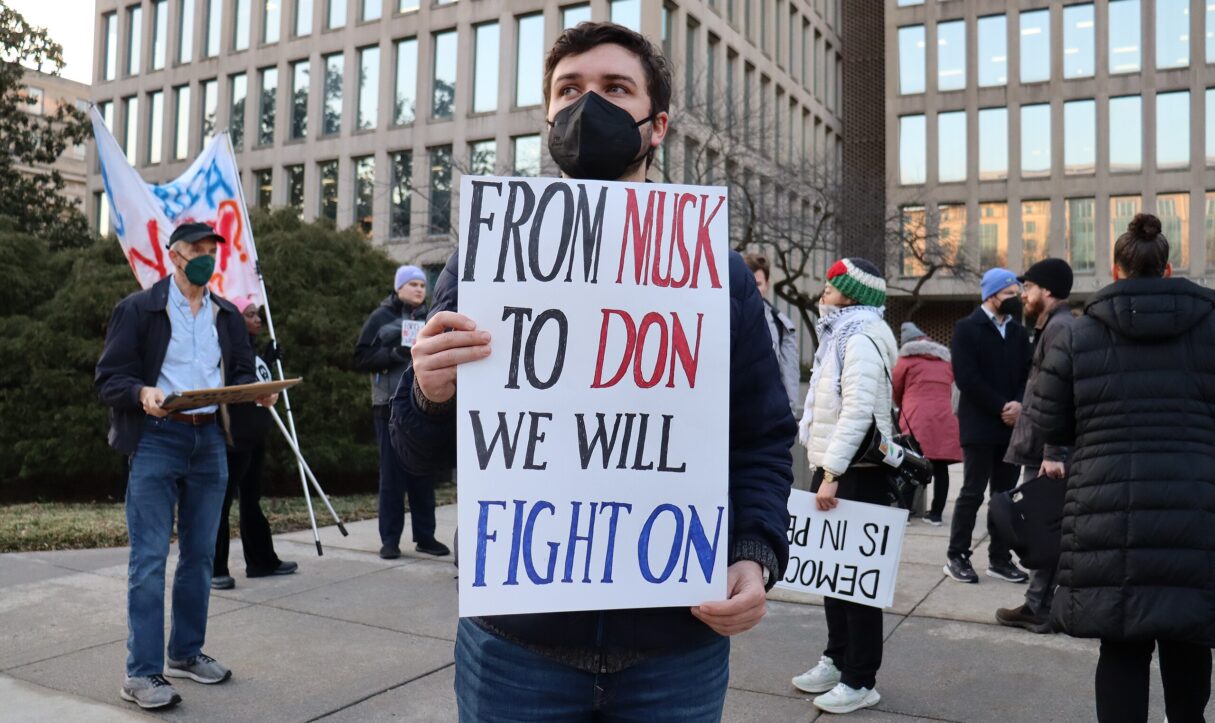The Project On Government Oversight (POGO) July report, “Behind the New Rule That’s the Latest Attack on Public Servants,” details how in June 2025, the Office of Personnel Management (OPM) proposed a sweeping rule that would dramatically alter how federal employees are disciplined and removed. The proposal has sparked alarm among civil service advocates and whistleblower protection groups. The rule sought to expand OPM’s authority to apply “suitability” determinations to current employees based on post-hiring conduct — an approach critics have warned would undermine statutory due process protections and politicize the federal workforce.
Under existing law, OPM uses suitability assessments primarily to vet applicants and new hires. The proposed rule, however, would allow OPM to retroactively evaluate current employees’ conduct and remove them without the procedural safeguards provided under Chapter 75 or Chapter 43 of the Civil Service Reform Act. These chapters were designed to ensure that agencies could terminate underperforming employees while protecting them from politically motivated or retaliatory firings.
The rule applies to all executive branch agencies, including the Department of Defense (DoD), which encompasses the Pentagon. According to the Federal Register summary of the rule, OPM may take suitability actions against current federal employees — including those at the Pentagon — based on post-appointment conduct, provided there is a proper referral from the head of the employing agency
“This proposed rule seeks to undermine one of the foundational components of our federal government: the professional, nonpartisan civil service,” POGO wrote in its analysis. The organization warned that the rule would “authorize the government to subvert longstanding civil service protections,” “allow the current and future administrations to further politicize the civil service,” and “escalate whistleblower retaliation and chill protected speech.”
One of the most concerning aspects of the rule was its impact on the Merit Systems Protection Board (MSPB), which currently serves as a safeguard for federal employees facing disciplinary action, according to the report. Under the new rule, MSPB’s authority would be severely curtailed. While employees could still appeal suitability-based removals, the Board would only be able to issue findings — not overturn OPM’s decisions. “There is simply no justifiable rationale to remove MSPB’s authority to decide the merits of these civil servants’ appeals,” POGO stated.
OPM estimated that the rule would reclassify approximately half of all termination actions currently initiated under Chapter 75 as suitability actions. This shift could strip roughly 1,000 career employees of their due process rights each year, leaving them vulnerable to arbitrary or politically motivated dismissals.
This would chill federal workers’ free speech.
The rule also raised concerns about the consolidation of power within OPM. Traditionally, individual agencies have had discretion over personnel decisions. Under the proposed changes, agencies would be required to refer suitability questions to OPM, which would then determine whether to take action. “This rule would both remove critical personnel decisions from agencies and undercut restrictions that protect against an administration attempting to further politicize the civil service,” POGO warned.
To justify the rule, the administration cited two statutes — 5 U.S.C. 3301 and 5 U.S.C. 7301 — both of which relate to presidential authority over civil service regulations. However, POGO argued that neither statute supported the proposed changes. Section 3301 pertains to the admission of individuals into the civil service, not the treatment of current employees. Section 7301 allows the president to prescribe regulations for employee conduct but does not authorize new disciplinary procedures that override existing protections.
The rule also introduced vague new criteria for determining suitability, including “theft or misuse of government resources and equipment, or negligent loss of material government resources and equipment.” POGO noted that such language could be weaponized against whistleblowers or used to justify politically motivated firings. “Vague rationales such as ‘misuse of government resources’ easily allow for innocuous behavior, such as losing a pen or misplacing an office stapler, to be selectively used against employees for political reasons,” the report stated.
Another criterion — “refusal to certify compliance with, and/or adhere to, applicable non-disclosure obligations” — raised red flags for whistleblower advocates. Federal law prohibits agencies from enforcing nondisclosure agreements that override whistleblower protections, but the rule could pressure employees to comply with potentially unlawful agreements to avoid termination. “This would chill federal workers’ free speech and curtail the ability of employees to speak out against abuses of power and other wrongdoing,” POGO warned.
In its conclusion, POGO called for the rule to be withdrawn, arguing that it would not improve efficiency or accountability. “OPM has not demonstrated a need to create an entire parallel process that would allow it to pick and choose which employees should receive due process protections,” the report stated. “This rule won’t improve efficiency, consistency, rigor, or effectiveness. Instead, it would lead to inconsistent standards and open the door to arbitrary actions against employees for vague, political, or other unwarranted reasons.”
POGO urged the administration to work with Congress to strengthen whistleblower protections and uphold the integrity of the civil service. “Only when employees can do their jobs without partisan political pressure and safely sound the alarm about government wrongdoing can we better ensure the integrity of the civil service and that our government is accountable and responsive to the needs of everyone.”
Top photo: Protesters rallied against a crackdown on civil servants outside the Office of Personnel Management in Washington DC, Feb. 4, 2025 (Elvert Barnes/Wikimedia Commons)




















